Nasarawa Communities Recount Horror Of Dawn Attack That Claimed 37 Lives
A month after Taka Lafiya and Gwanja communities were attacked by suspected armed herders, the farms have remained deserted. Residents are still too scared to go back to their homes. They say they feel vulnerable and security must be improved.
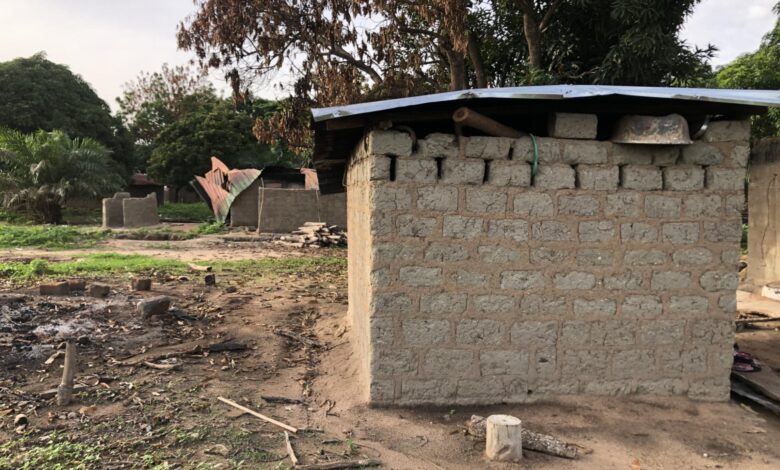
When Emmanuel Maiganga, 44, saw his elder brother’s dead body, drenched in blood, he knew life would never remain the same.
On May 11, 37 people were killed in a dawn attack on the villages of Gwanja and Taka Lafiya in Nasarawa State, North Central Nigeria. Another eight people were injured.
Emmanuel’s brother James was one of those killed. Emmanuel found his brother’s body in the house where he had lived with his two wives and 17 children. The rest of James’ family managed to escape unharmed.
Survivors said the attack was connected to an altercation between a herder and a farmer that had happened less than 24 hours previously.
The herder was a well known man locally, a Fulani named Jibo Alhaji Ali, 18. The groundnut farmer has not been identified. It is understood he survived the attack and is being protected by the community.
The cattle the young herder was minding had wandered onto the man’s farm, and the cow’s grazing on the crops sparked a heated argument.
Fight
Sources in Gitata, the main village in the area, said the herder brought out a machete and tried to attack the farmer. The farmer is said to have managed to disarm his attacker and then used the machete on the herder, seriously injuring him.
The farmer then took the injured herder on a motorbike the five kms along a dirt road to the police station in Gitata. Police say they took the injured herder to a clinic.
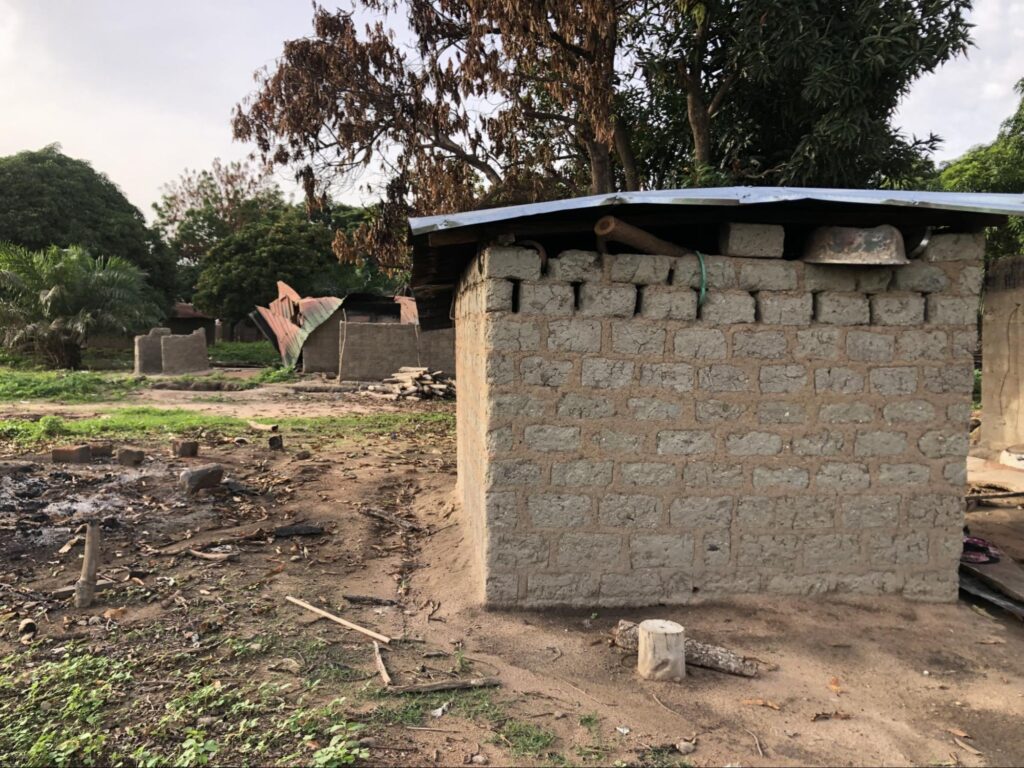
Local sources said the herder died at Na’Allah Clinic, a private medical facility in Gitata as a result of the injury he sustained.
A local chief confirmed the police’s story, he told HumAngle the injured herder and the farmer went to the Divisional Police Office in Gitata. The herder later died in the clinic, the local ruler said.
The next day, around 5:30 am, a large group of men arrived in Gwanja, the village where the fight had begun, on motorcycles.
They went house to house, killing four people and injuring others. They razed down five buildings before they moved to Taka Lafiya, another village about six kms away from Gwanja.
There they killed 32 people.
Shocked
Residents who spoke to HumAngle said they were shocked at how quickly the assailants moved to the village on the rampage, wielding guns, daggers, and petrol for burning buildings.
Most of the people killed were men, with young people being the most targeted, according to a local chief who pleaded anonymity.
One woman was killed, he says. But many sustained injuries.
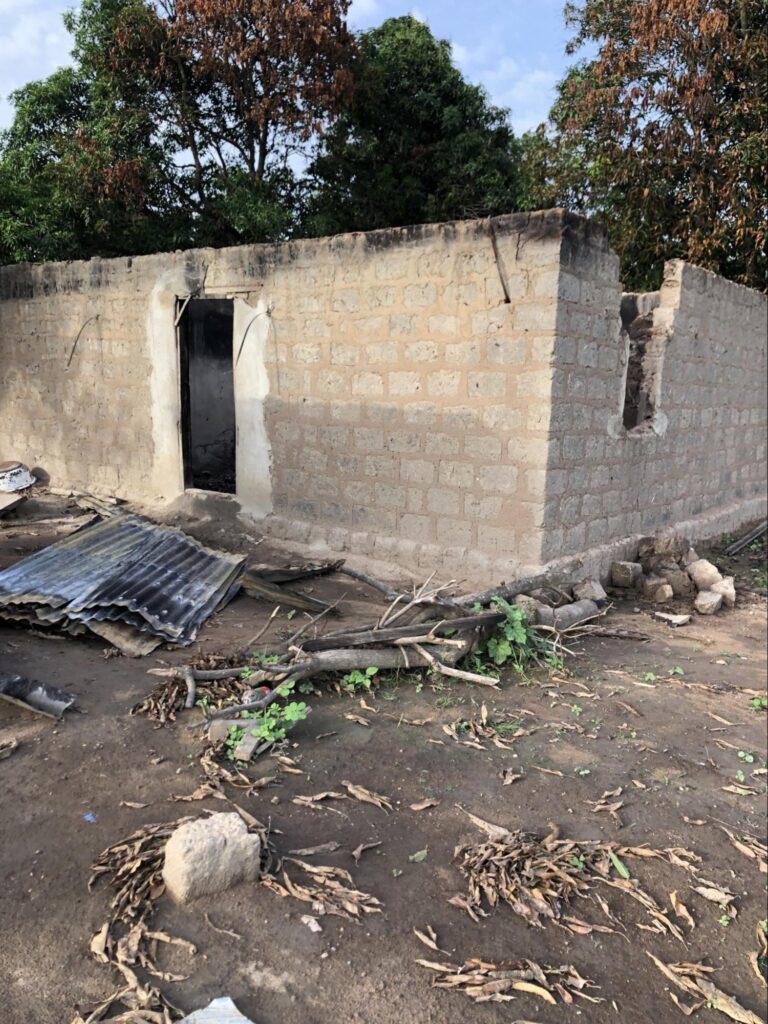
In the aftermath of the attack, the Police spokesperson in Nasarawa State said they had sent a reinforcement of their operatives to the area.
“The Commissioner of Police, Mr Maiyaki Baba, deployed police operatives comprising of mobile police personnel, counter-terrorism unit, and the military to the area where 14 corpses were recovered and taken to the hospital and subsequently buried.
“The commissioner of police hereby condoled with all those who lost their loved ones and ordered a discreet investigation to unravel the faces behind the attack, assuring that anyone found culpable will be dealt with according to the provisions of the law,” the statement by the police said.
However, residents told HumAngle that the security operatives left immediately after the burial which took place a day after.
“All I can recall about the day that the incident occurred is that it was a tragic day for me because I lost my elder brother in the attack. We had a promise a day before the attack that we would meet the next day to carry out an agreed assignment. Unfortunately, we witnessed an attack that even led to the loss of his life,” Maiganga told HumAngle.
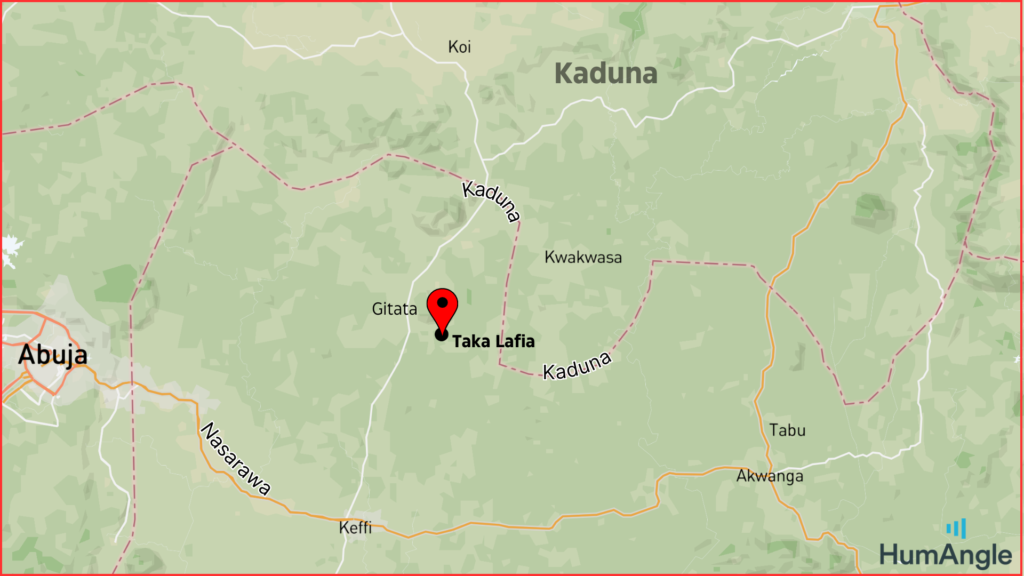
During the attack the assailants did not identify themselves, or say anything that connected them with the herder Jibo Akhaji Ali. It is impossible to establish with certainty that the attack was a reprisal for his killing.
But the timing of the attack, and the fact that the men took away with them livestock that the farmers had, and that Fulfulbe was heard being spoken by the raiders, suggests the attack was by an armed band of Fulani, motivated by revenge for the death of their kinsman.
Communities around central Nigeria have witnessed similar attacks. The attacked Nasarawa community is eight km away from to Kaduna State North West Nigeria and less than 92 km to Zangon Kataf, where at about 400 people have lost their lives in the last two years as result of armed clashes between farmers and herders that have resulted in further reprisals.
Taka Lafiya is also about 170 km to Plateau State North Central Nigeria, where at least 200 people were killed last month.
Livelihoods
Locals, who are now taking refuge in the neighbouring villages said 57 houses were burnt down and three churches have been destroyed. Their means of livelihood have been threatened too.
Yakubu Mamman, 55, who lost five family members during the attack described the day as “the most tragic day of my life.”
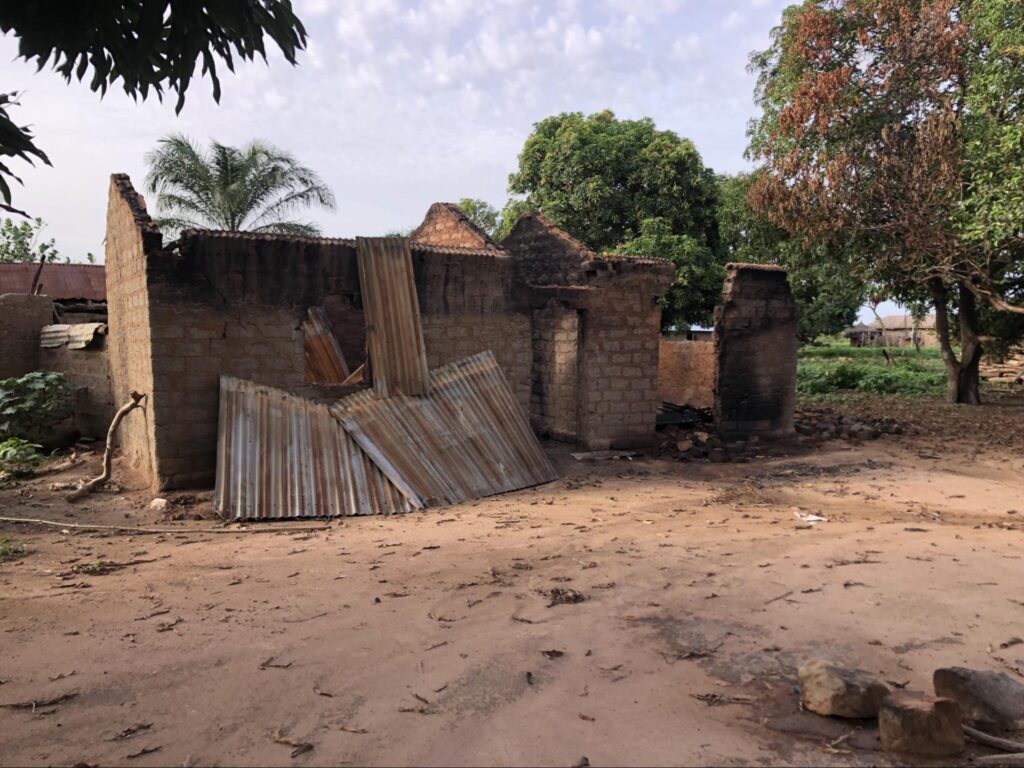
He was lucky to escape before his house was attacked.
“Since my house is a bit far from where people reside, I packed my family and we crossed the stream. I, my wife and five children escaped unhurt. But my uncle and four of my younger brothers were killed during the attack. That’s how we lost five people in our family during the incident.”
As he sobbed, he said “This is too much. They have burnt our houses, our motorcycles, and the grains we stored at home.”
Three churches were also destroyed, and a clergyman, Reverend Daniel Danbeki of ECWA church, was killed.
Residents of the community, who are all dislocated, have moved to stay with relatives in neighbouring communities and local government.
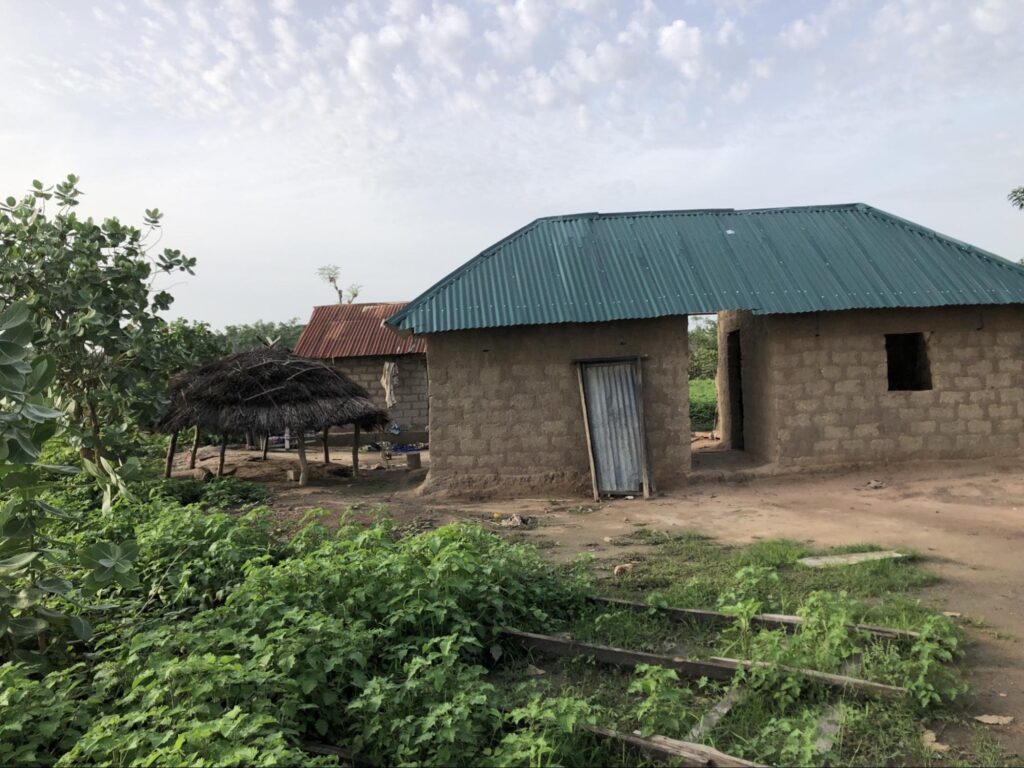
The Taka Lafiya and Gwanja communities have been deserted as a result of the attack.
For over a decade, the perennial conflict between farmers and herders in central Nigeria has led to the death of scores and the displacement of hundreds of thousands of people.
“It’s heartbreaking. I have been enmeshed in a difficult situation. Our cattle have also eaten what we planted on our farms. They have entirely destroyed the yams I have planted,” another victim told HumAngle.
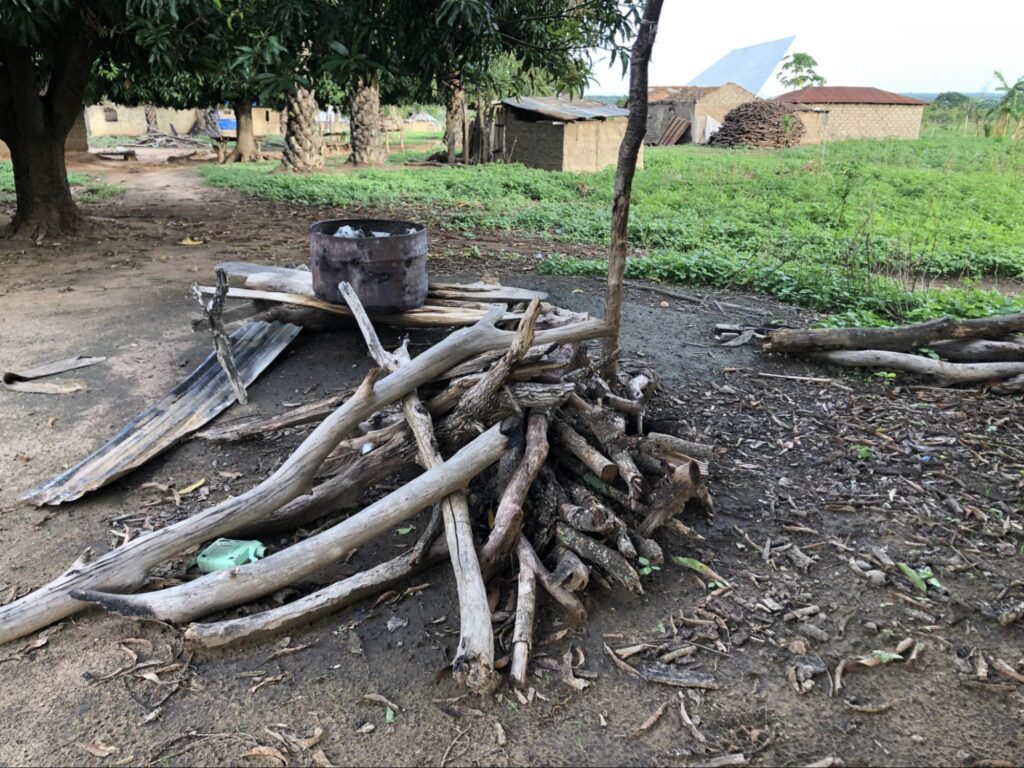
“Every rainy season when I plant yam, if I don’t get 1 million naira, that means it’s not a bumper harvest to me. This season I planted all I could. That is not a small amount of money,” Mamman said. It was now all lost.
He added that his life has entirely changed. “I am in a troubling situation. I now sit idly. I don’t have anywhere to go. It has affected my life.”
From 2001 to 2018, about 60,000 deaths were recorded in such clashes as these. It is estimated that more than 300,000 were displaced across Benue, Plateau, Nasarawa, and Taraba states, most of which are in the North Central region.
“We want to resettle but the government has left us without saying anything. We don’t know if the government has any plans for us.”
Their displacement and the burning of their farmlands have translated into an acute lack of food.
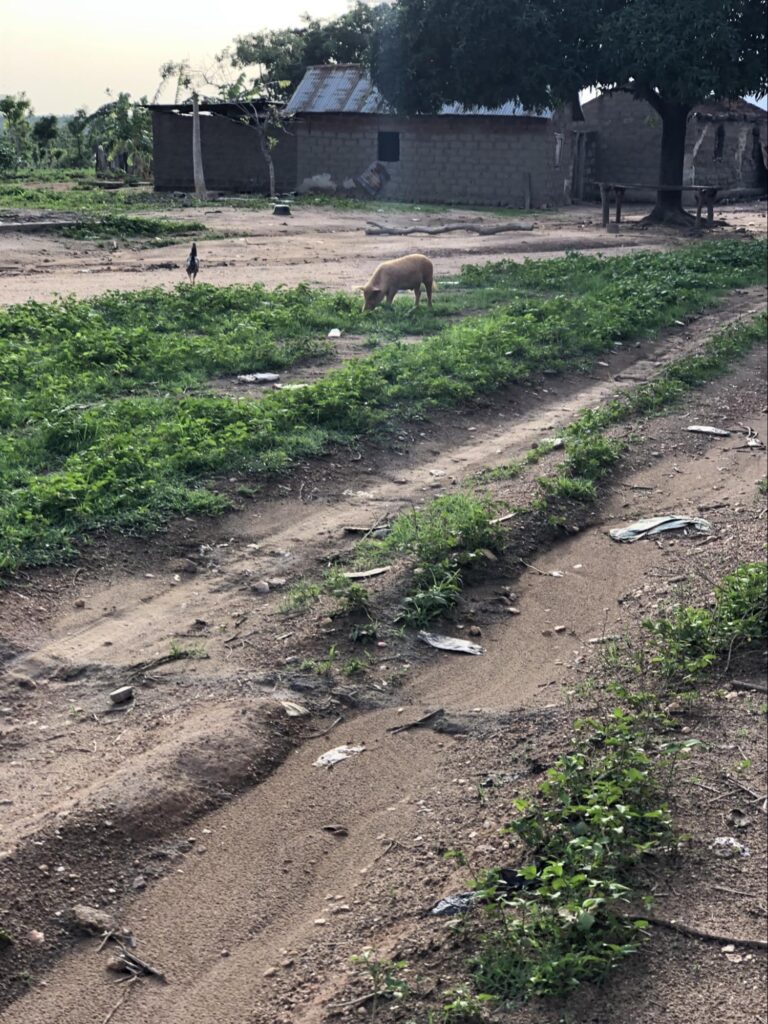
According to Maiganga, the attackers have destroyed their farm produce. “For this farming season, we don’t know how we will begin and how we will end it. When people ran away, the cattle herders encroached on our farms with their animals and finished everything. They have wasted our maize, yam, and millet, even worse than we expected.
“They burnt some and later in the night they came back to loot because there was nobody left. They left with goats, fowl, and other livestock. I am just existing. I don’t know the way out,” Mamman lamented.
The displaced people say they are eager to return home. But, they are also concerned about their safety and how to start life all over. “Where are we going to stay?” Mamman said.
Yakubu Mamman now lives in Maraban Panda. He said some of his family members are here with him while others are in Keffi, at least 4o km away from where he lives now and at least 90 km to Abuja, Nigeria’s capital.
He said he has been moving from one village to another looking for a solution to his current problem, but there is none.
“Life is hard for me. Now, I want to plant again but I don’t have the means to buy pesticides. I am just helpless not to even talk of what to help my family with. We have all turned to labourers. If we see any labour we will do it to earn something to buy soap and what we will eat. Even if we have the chance to farm, we don’t have the money to plant,” he lamented.
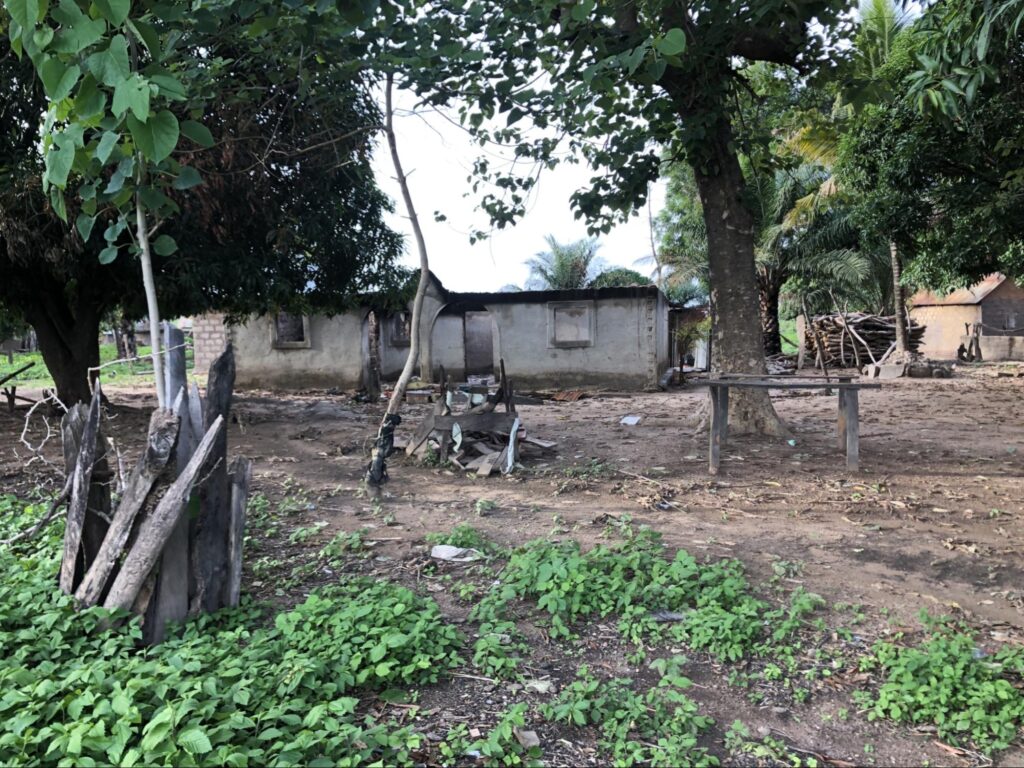
According to him, since he was born more than five decades ago, he has never seen a tragic event like this. “I have heard of similar crises in the news but I have never witnessed it until now,” he said.
Taking care of the 17 children his brother left has not been easy for Maiganga. He said he holds a university degree but over seven years after he obtained it, he is still unemployed. Now, with the death of his brother, his ordeal has doubled.
“The family now is dispersed. They are all temporarily staying in different places,” Maiganga said.
Disappointed
According to him, the assistance they got from authorities is nothing to write home about. “The support we are getting is not enough,” he said.
“The local government Chairman brought relief items for us. For our entire area, we got three measures of rice (about 3.5 kg), two sachets of Maggi seasoning and one tin of palm oil. You see these are relief items but they are not going to do anything for us. And, apart from them, there is nothing,” he said disappointedly.
Before the attack, they used to eat up to three times a day, Maiganga said. Now, that is no longer the case.
“We drink water in the morning. During the day, we look out for somewhere to forage for food. Our life has never been the same,” Sanda, a father of five said.
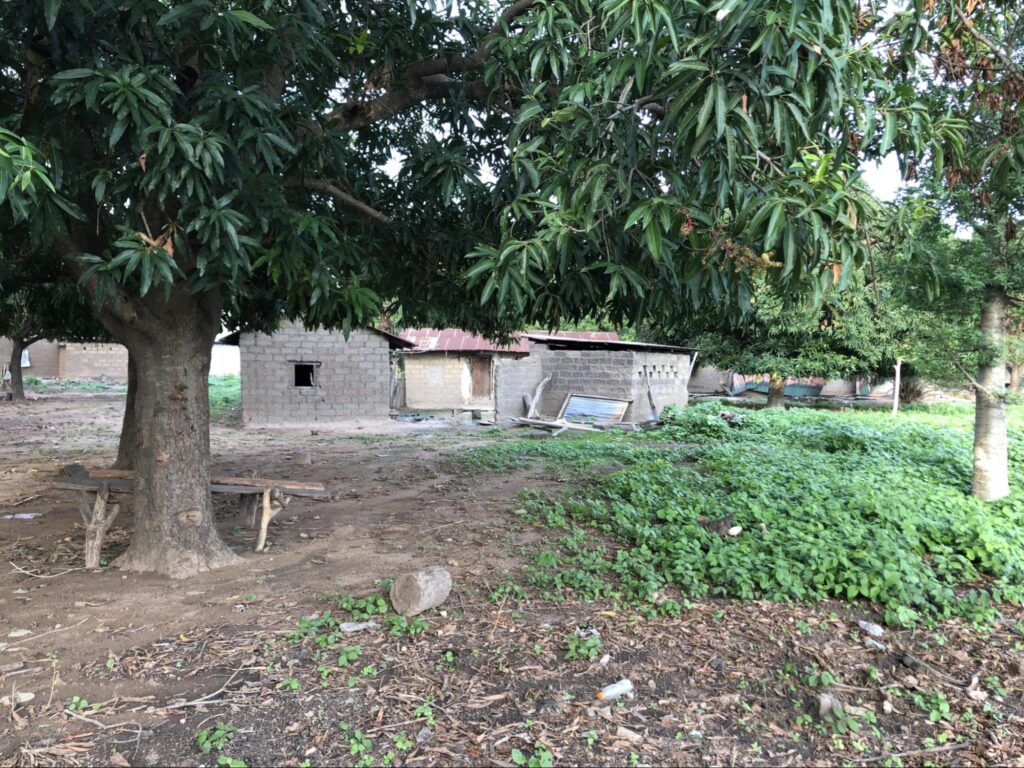
They had been feeding from the little food left in their silos. But now, more than a month after the attack, the food has run out.
The community that is largely agrarian said they farm crops like maize, millet, yam, groundnut and beans.
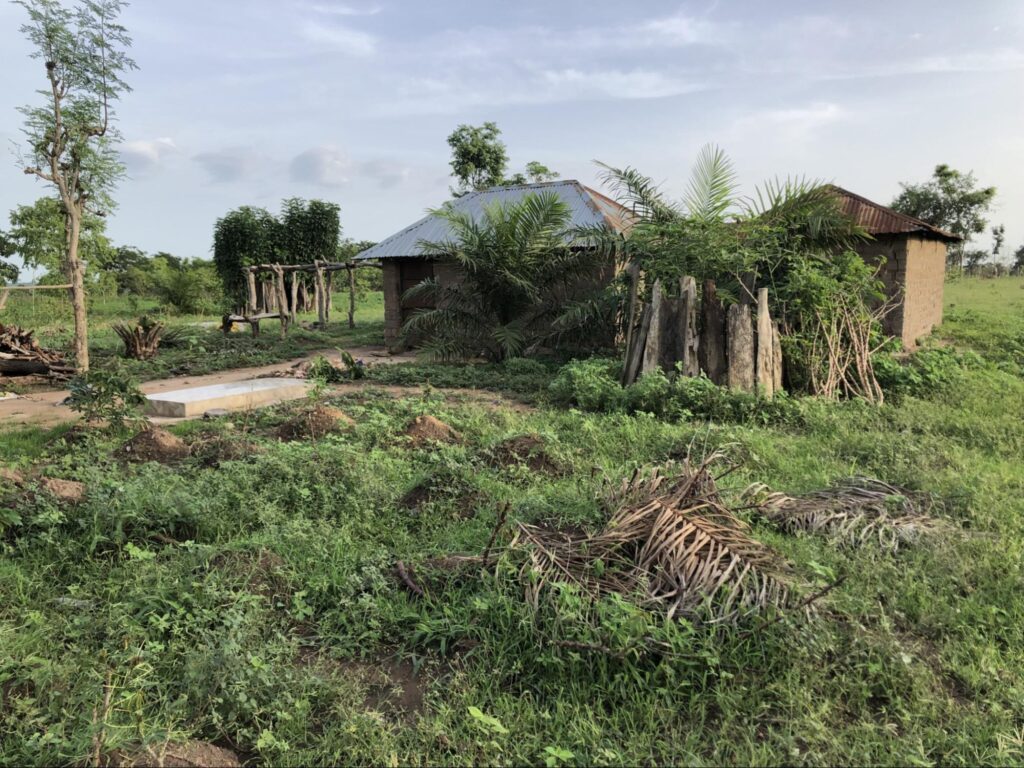
“People are willing to resettle in their homes but we are hoping that the government will come to our aid by providing security in the villages. By doing that, it will allay the fears of people,” Maiganga said.
Some of the residents of Taka Lafiya who have the wherewithal to buy seeds and pesticides have cleared their farms and planted. They work during the day and go back to neighbouring villages at night.
“We have been used to farming. We don’t have any alternative to it, so people are trying to go and plant again in their farms,” a displaced resident of the community said.
“We have found ourselves in a very difficult situation that we are more concerned about what to eat now than anything else. The food in most houses has been burnt down. For those whose houses were burnt, you don’t expect them to go and start rebuilding their houses without looking for food,” Mamman said.
Support Our Journalism
There are millions of ordinary people affected by conflict in Africa whose stories are missing in the mainstream media. HumAngle is determined to tell those challenging and under-reported stories, hoping that the people impacted by these conflicts will find the safety and security they deserve.
To ensure that we continue to provide public service coverage, we have a small favour to ask you. We want you to be part of our journalistic endeavour by contributing a token to us.
Your donation will further promote a robust, free, and independent media.
Donate HereStay Closer To The Stories That Matter




